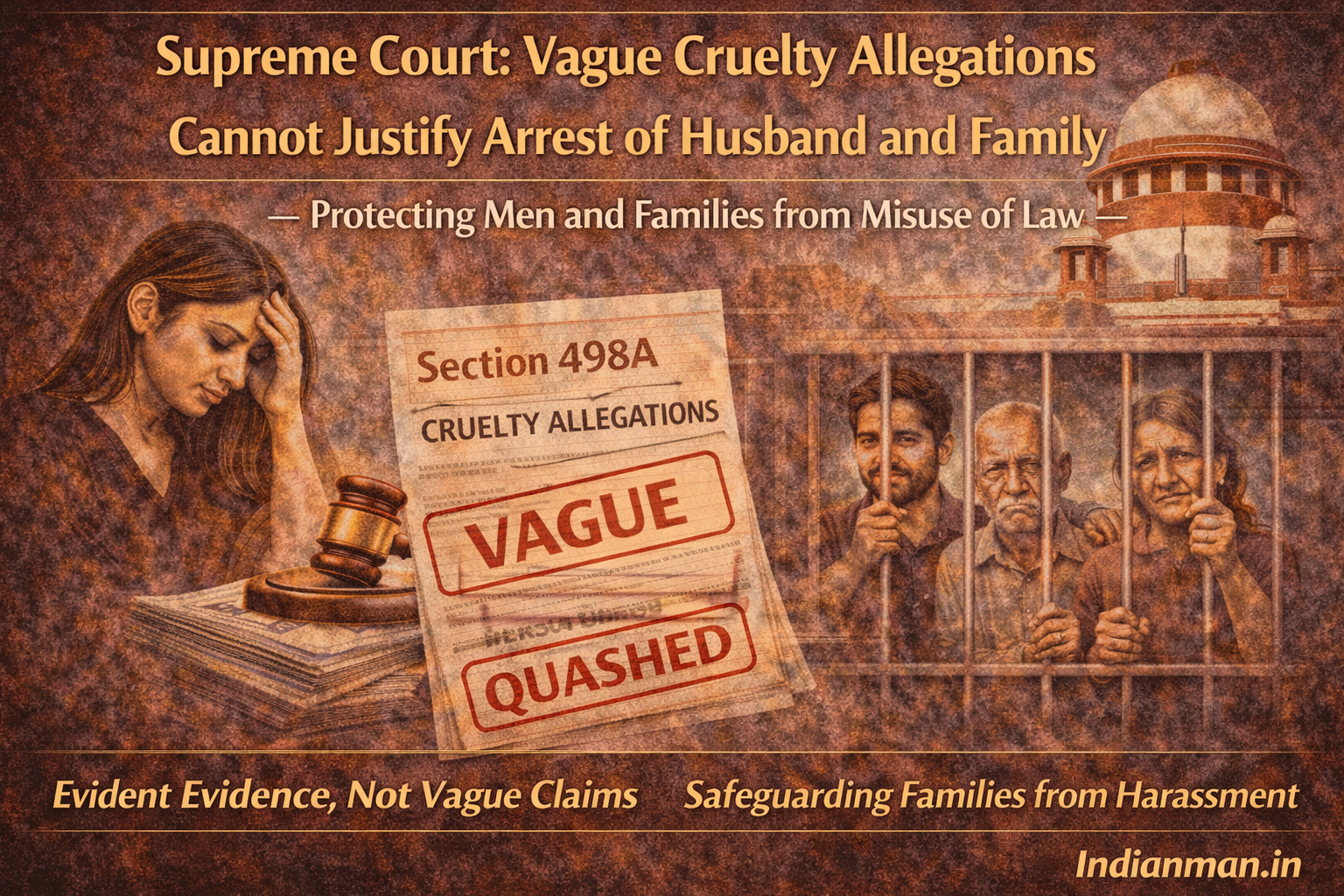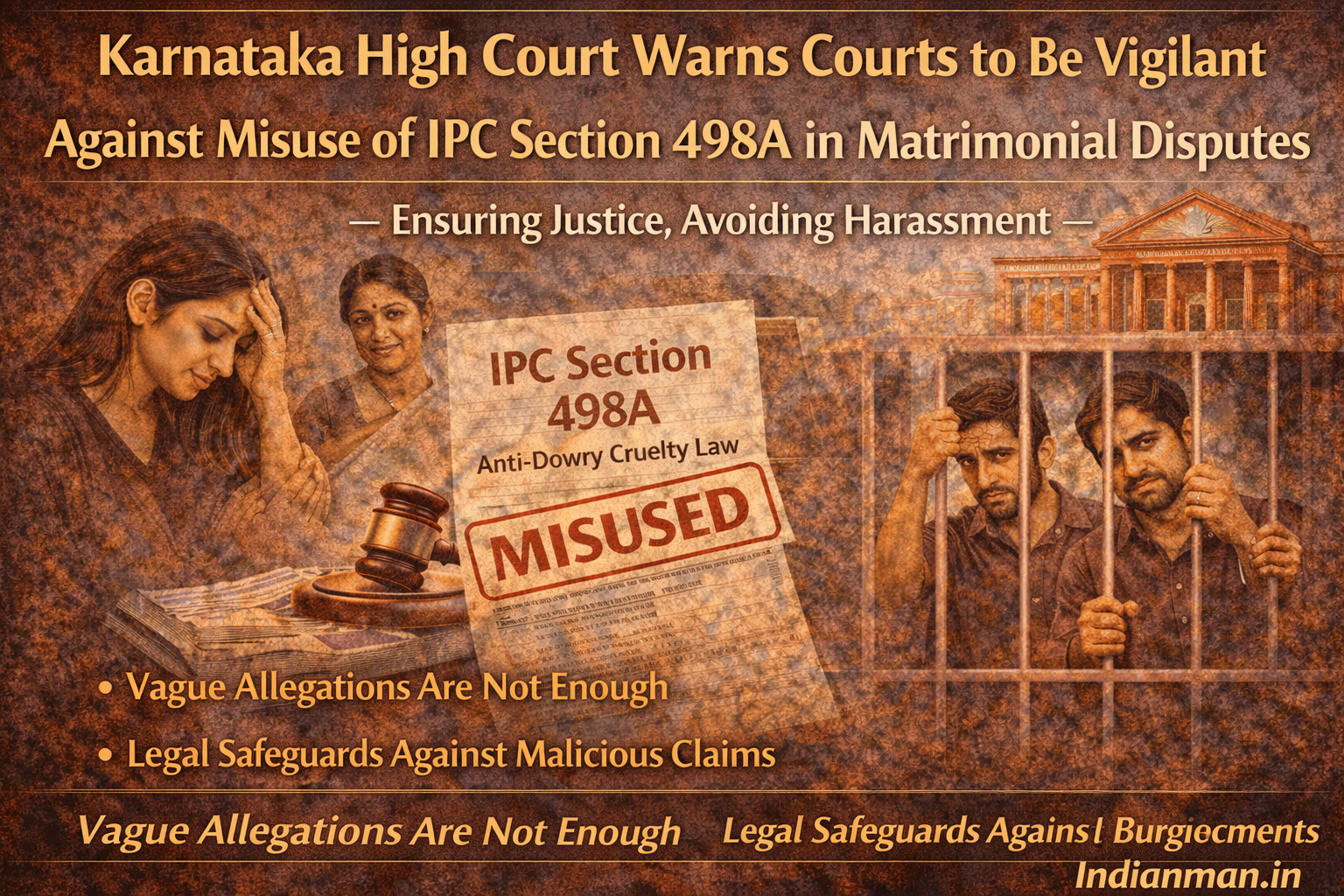In a significant move, the Allahabad High Court has introduced safeguards to prevent the misuse of Section 498A of the Indian Penal Code (IPC). The court’s decision aims to stop the growing trend of using false allegations to harm husbands and their families.
The court stated, “No arrests or coercive actions shall be taken against the husband or his family members for two months after an FIR or complaint is filed, allowing a ‘Cooling-Period’.” This ruling was made by Justice Rahul Chaturvedi while reviewing petitions against a lower court order that denied requests to dismiss the charges.
Case Overview:
The case involved a woman filing an FIR against her husband and in-laws, accusing them of cruelty, intentional insult, criminal intimidation, attempted murder, and violations under the Dowry Prohibition Act. The woman alleged that she was pressured for dowry, locked in a bathroom, and subjected to other forms of cruelty, including demands for sexual favors by her father-in-law and brother-in-law.
However, the High Court criticized the nature and language of the woman’s accusations, calling them exaggerated. The court pointed out that, except for a bruise on her neck, which suggested an attempt by her husband to strangle her, there were no serious injuries. The court noted the lack of physical evidence and her refusal for a medical examination.
The judge stated that such cases often involve exaggerated complaints to seek revenge, damaging the institution of marriage. The court found it unlikely that her father-in-law and brother-in-law would make such demands, considering the traditional values of Indian joint families.
Court’s Directions:
To address the misuse of Section 498A, the court set the following guidelines:
- Cooling-Period: No arrests or police actions will be made for two months after filing the FIR or complaint, allowing time for the matter to be reviewed by a Family Welfare Committee (FWC).
- Referral to FWC: Cases involving Section 498A IPC, with no severe injury or other IPC sections with imprisonment less than 10 years, will be referred to the FWC.
- FWC Composition: Each district will have one or more FWCs, comprising members like mediators, young advocates, social workers, or retired judicial officers.
- FWC Proceedings: The committee will summon both parties and their elders for discussions, aiming to resolve disputes within two months. A report will be prepared for the magistrate or police.
- Police Role: Police officers are to avoid arrests or coercive actions during the Cooling-Period, conducting only peripheral investigations.
The court emphasized that the traditional values of marriage should not be undermined by the misuse of legal provisions.
Be a part our social media community:
Facebook: https://www.facebook.com/IndianMan.in?mibextid=ZbWKwL
Instagram:
https://www.instagram.com/indianman.in?igsh=MWZ2N3N0ZmpwM3l3cw==



